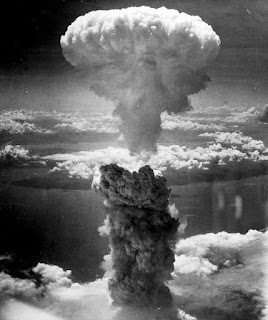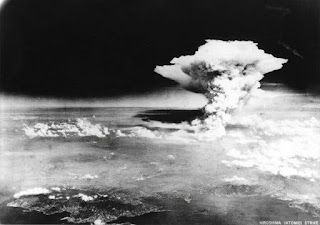The morality of Oppenheimer
J. Robert Oppenheimer was a theoretical physicist from New York. He was born in April of 1904, and died in February of 1967. During his life, he graduated from Harvard and taught physics at the university of California in Berkeley. He conducted ample research in quantum mechanics and nuclear physics, and his development of the hydrogen bomb deemed him the title of the “Father of the atomic bomb”. Source.
He worked closely on the Manhattan Project, which was the first true test of Nuclear weapons in the New Mexican desert. Upon the detonation of the hydrogen bomb, the famous quote from the Bhagavad Gita came to him, “I am become death, the destroyer of worlds.”. He understood, deep down, that his work with nuclear physics would alter the course of history forever, and that the world would never be the same.
A portrait of Oppenheimer.
He worked closely on the Manhattan Project, which was the first true test of Nuclear weapons in the New Mexican desert. Upon the detonation of the hydrogen bomb, the famous quote from the Bhagavad Gita came to him, “I am become death, the destroyer of worlds.”. He understood, deep down, that his work with nuclear physics would alter the course of history forever, and that the world would never be the same.
The mushroom cloud of the bomb after
the Manhattan Project detonation.
Oppenheimer’s assumption was correct, for the world was forever changed when two atomic bombs fell on Hiroshima and Nagasaki in Japan, in both retaliation for Pearl Harbor, as well as a show of strength of the us military towards the Nazis during World War Two. His actions in dropping these bombs forever changed the course of history.
The Hiroshima mushroom cloud
Oppenheimer struggled heavily with the results of his actions, knowing fully well that he helped kill hundreds of thousands of people. He was so caught up in the idea of his actions bringing an end to the war that he didn’t think of the consequences of those same actions that resulted in the loss of countless innocent lives. Oppenheimer died with that very knowledge, knowing that on one hand he helped and the war, but on the other he committed one of the biggest atrocities known to mankind.






Comments
Post a Comment